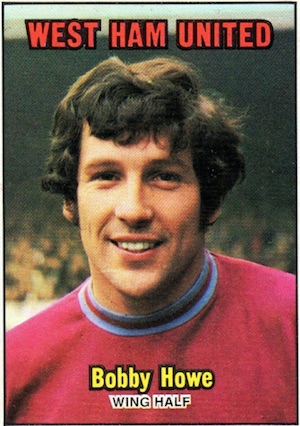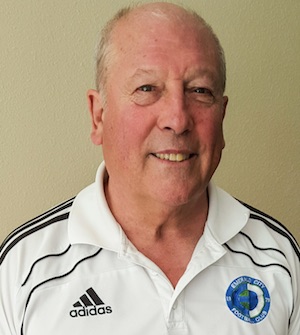Former Director of Coaching for U.S. Soccer Bobby Howe on Youth Soccer
We live in a country where winning is sometimes confused with development and a country of instant gratification. Unfortunately, that does not work for soccer.
Bobby Howe was the Director of Coaching for U.S. Soccer from 1996-2000 and is an expert on soccer in the USA. A transplant from England, Howe began his professional playing at West Ham United in the English Premier League — where he played from 1966 to 1971.
A few years later, Howe crossed the Atlantic and became a player/coach for the Seattle Sounders, who were playing in the NASL at the time. Howe has been on the USSF National Instructional Staff, coached the Portland Timbers and the U.S. Under-20 Men’s National Team. Howe is now semi-retired, coaching a single youth team and providing his expertise through training webinars and his writings to the GO! Governance & Operations program founded by Ruth Nicholson.
Most great coaches will never learn half of what Howe knows about the beautiful game and developing players.
Related Soccer News: RUTH NICHOLSON ON AMERICAN YOUTH SOCCER – WHAT’S RIGHT AND WHAT’S WRONG
SoccerToday’s Diane Scavuzzo asked Bobby Howe for his thoughts on the future of youth soccer in America, specifically on ideas for player development in the USA.
 Diane Scavuzzo: What is right and what is wrong in American youth soccer?
Diane Scavuzzo: What is right and what is wrong in American youth soccer?
Bobby Howe: What’s right? The understanding of the current issues in soccer in the USA and a determination to improve performance in all aspects of governance, operations, and coaching.
What’s wrong? At youth level — the lack of understanding that soccer is a player’s game and all decisions political, operational and coaching should take into consideration the needs of the players.
Coaches must allow “the game to be the teacher”
Coaches should use their knowledge to guide the players to successful responses to their problems on the field of play.
It is important that U.S. Soccer takes its time to address the above, seeks expert opinion, looks at the reasons for success in other countries but understands the geography and in many cases, the mentality of this country which is so different from many other soccer nations.
We live in a country of instant gratification. Unfortunately, that does not work for soccer.

As a result, at the youth level, some parents will move their players around to “winning” clubs despite vast travel distances and inconvenience.
We also live in a country where winning is sometimes confused with development.
Naturally, playing to win is very important but winning games doesn’t necessarily tell the whole story. In other countries, there becomes a loyalty to playing for a club and supporting a club generally in the players’ geographical area. At this time, in the USA, loyalty and supporting the local club is not always part of the mentality.

Diane Scavuzzo: What needs to change in youth soccer today?
Bobby Howe: The United States Soccer Federation is now faced with the task of restructuring its entire organization in order to become competitive with the more prominent soccer nations.
Even those more successful nations have had to reassess their programs in the past few years and structure in order regain prominence in the sport.
The process of reorganization — in many cases — has taken approximately ten years and has covered every aspect of the game from U-6 play to the highest levels of international competition. All levels of discussion have included governance, operations, administration, coaching at all levels, education and player development considerations.
Diane Scavuzzo: What are your thoughts on the professional game in the USA?
Bobby Howe: The professional game is improving slowly, more teams are forming, stadiums are being built and a fan base is developing in those cities.
History of the professional game has shown that the “American” version of the game as demonstrated in the ‘70s and ‘80s with its own points systems, rejection of ties, different methods of shootouts, etc. have all given way to the rules used elsewhere in the world.
Perhaps it is now time to give much consideration to the promotion/relegation structures implemented by other nations.
Diane Scavuzzo: What about our Women’s National Team?
 Bobby Howe: Arguably, the US women are the best in the world therefore, they should have the opportunity to perform consistently at their highest levels in this country.
Bobby Howe: Arguably, the US women are the best in the world therefore, they should have the opportunity to perform consistently at their highest levels in this country.
Elsewhere in the world women are affiliated with and supported by professional clubs. U.S. Soccer should ensure that our women have similar opportunities here by requiring professional clubs to operate a women’s program.
Diane Scavuzzo: What should we focus on?
Bobby Howe: Coach education and understanding is vital to the success of the game.
Soccer is a game of skill, imagination, creativity and decision making.
Coaching is all about working with players to enhance those elements and not about stifling regimens. Coaching is also about understanding the ages and levels of play and their respective standards.
Coach education must also address the above by creating the appropriate curricula and emphasis. New coaches must be encouraged to take their respective levels of license, but should not be expected to travel too far to participate.
All licenses should include a practical component.
 Coach education must be affordable and education centers must be accessible. There is a need to construct more national Training Centers to accommodate both players and coach education.
Coach education must be affordable and education centers must be accessible. There is a need to construct more national Training Centers to accommodate both players and coach education.
More female coaches need to be encouraged to participate in education courses. My experience has shown that some of the best coaches in the licensing program have been women.
It is important for the referee program to be reviewed regularly. However, at this time I believe the referees do an excellent job of monitoring themselves.
Diane Scavuzzo: Where have we fallen short and how can that be improved?
Bobby Howe: Youth soccer must have a consistent method of identifying its best players where the ‘top of the pyramid’ is clearly understood and where the various youth national teams have the very best opportunity to compete in World Championships.
Currently, there are too many factions trying to achieve the same goal.
This period of time now presents a wonderful opportunity for U.S. Soccer to review the selection process and direct one clear method of selection.
Diane Scavuzzo: What do you recommend?
Bobby Howe: All the above are suggestions for improvement but certainly do not provide all the answers.
This is the time for U.S. Soccer to review suggestions from the entire soccer community and provide a blueprint for implementation.







